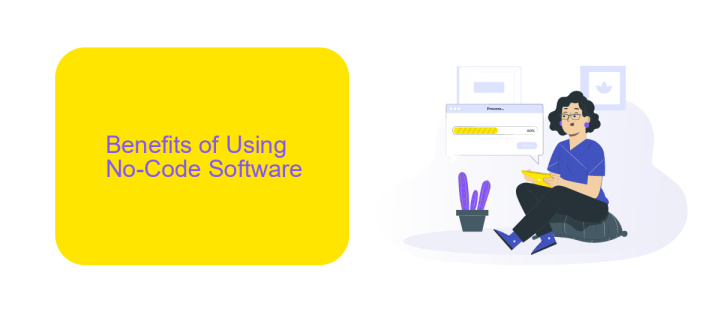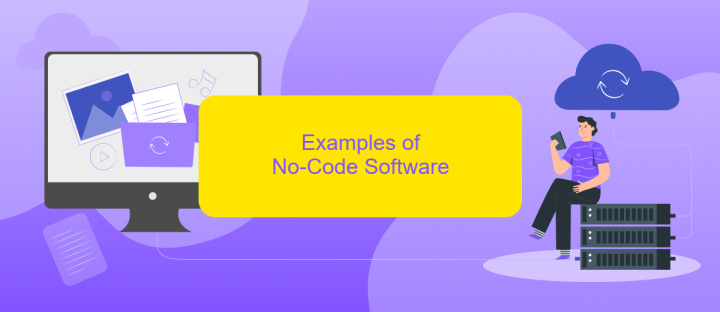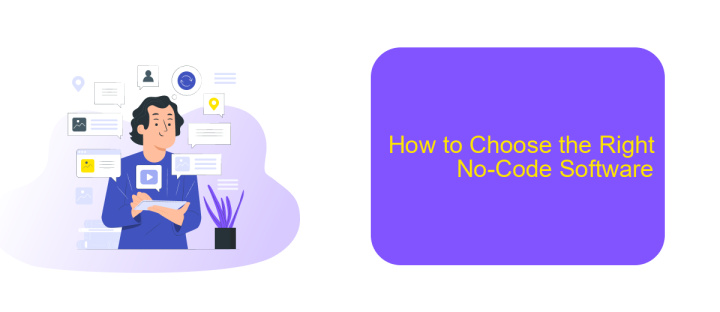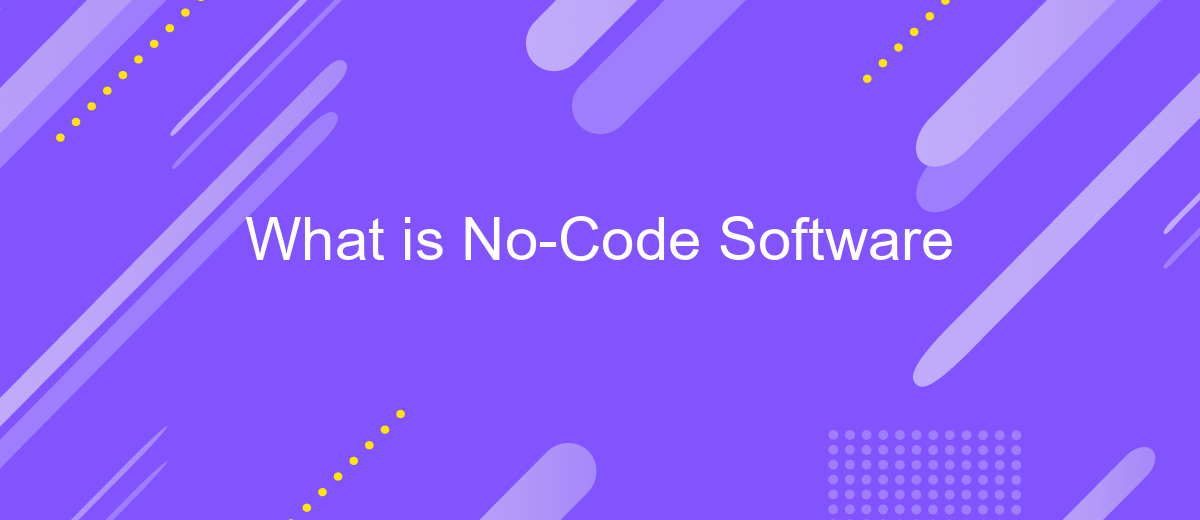What is No-Code Software
No-code software is revolutionizing the way we approach application development by enabling users to create software solutions without writing a single line of code. This paradigm shift empowers non-technical individuals to bring their ideas to life, reducing the dependency on traditional programming skills and accelerating the development process. In this article, we explore the fundamentals of no-code software and its impact on the tech industry.
What is No-Code Software?
No-code software refers to platforms and tools that allow users to create applications, websites, and other digital solutions without needing to write any code. These platforms provide a user-friendly interface, often with drag-and-drop features, enabling individuals with little to no programming knowledge to build functional software.
- Drag-and-drop interfaces for ease of use
- Pre-built templates and modules
- Integration capabilities with other software
- Customizable workflows and automation
No-code platforms are particularly beneficial for small businesses and startups that need to develop software quickly and cost-effectively. Services like ApiX-Drive can further enhance these platforms by offering easy integration with various other tools and services, streamlining workflows and improving productivity. This democratization of software development empowers a wider range of individuals to bring their ideas to life without the traditional barriers of coding.
Benefits of Using No-Code Software

No-code software offers numerous benefits, making it an attractive option for businesses of all sizes. One of the primary advantages is the significant reduction in development time. By enabling users to create applications without writing code, companies can launch products and implement changes much faster than traditional development methods. This accelerated timeline not only improves efficiency but also allows businesses to respond more swiftly to market demands and opportunities.
Another key benefit is the democratization of software development. No-code platforms empower non-technical team members to contribute to the development process, fostering greater collaboration and innovation. Additionally, these platforms often come with built-in integration capabilities, streamlining the connection between various tools and systems. For instance, services like ApiX-Drive facilitate seamless integrations, allowing businesses to automate workflows and enhance productivity without the need for complex coding. This ease of integration further amplifies the overall efficiency and effectiveness of no-code solutions.
Examples of No-Code Software

No-code software platforms have revolutionized the way individuals and businesses create applications without needing extensive coding knowledge. These tools empower users to build, customize, and deploy software solutions quickly and efficiently.
- Bubble: A comprehensive platform for building web applications with a visual interface, allowing for complex logic and design without writing code.
- Webflow: A powerful web design tool that enables users to design, build, and launch responsive websites visually.
- ApiX-Drive: A service that simplifies the process of integrating various applications and automating workflows without coding. It supports numerous integrations, making it easier to connect different software tools.
- Zapier: An automation tool that connects different apps and services to automate repetitive tasks, enhancing productivity without programming.
- Airtable: A flexible database tool that combines the simplicity of a spreadsheet with the power of a database, allowing users to organize and manage data effectively.
These no-code platforms are just a few examples of how technology is democratizing software development. By lowering the barrier to entry, they enable more people to bring their ideas to life and streamline their operations without needing to rely on traditional coding skills.
How to Choose the Right No-Code Software

Choosing the right no-code software can be a game-changer for your business. The first step is to identify your specific needs and objectives. Consider what tasks you need to automate, the complexity of your projects, and the skill level of your team.
Next, evaluate the features and capabilities of different no-code platforms. Look for software that offers a user-friendly interface, robust customization options, and a variety of pre-built templates. Additionally, assess the scalability of the platform to ensure it can grow with your business.
- Identify your business needs and goals
- Evaluate features and capabilities
- Check for user-friendly interface and customization options
- Assess scalability and future growth potential
- Consider integration capabilities with tools like ApiX-Drive
Integration capabilities are crucial for seamless workflows. Tools like ApiX-Drive can help you connect various applications and automate data transfer without coding. By carefully considering these factors, you can select the no-code software that best fits your business requirements and enhances productivity.
The Future of No-Code Software
The future of no-code software looks promising as it continues to democratize technology, making it accessible to a broader audience. With the rise of artificial intelligence and machine learning, no-code platforms are becoming more intuitive and powerful, enabling users to create complex applications with minimal effort. This shift is not only empowering non-technical users but also allowing businesses to rapidly prototype and iterate, reducing time to market and fostering innovation.
Moreover, the integration capabilities of no-code platforms are expanding, allowing seamless connectivity between various tools and services. For instance, services like ApiX-Drive simplify the process of setting up integrations, enabling users to connect their applications effortlessly. As these platforms evolve, we can expect even more sophisticated features and greater scalability, making no-code solutions a cornerstone in the future of software development.
FAQ
What is No-Code Software?
Who can benefit from using no-code software?
What types of applications can be built with no-code software?
How can no-code software help with automation and integrations?
Is it possible to integrate no-code solutions with existing tools and services?
Time is the most valuable resource for business today. Almost half of it is wasted on routine tasks. Your employees are constantly forced to perform monotonous tasks that are difficult to classify as important and specialized. You can leave everything as it is by hiring additional employees, or you can automate most of the business processes using the ApiX-Drive online connector to get rid of unnecessary time and money expenses once and for all. The choice is yours!

